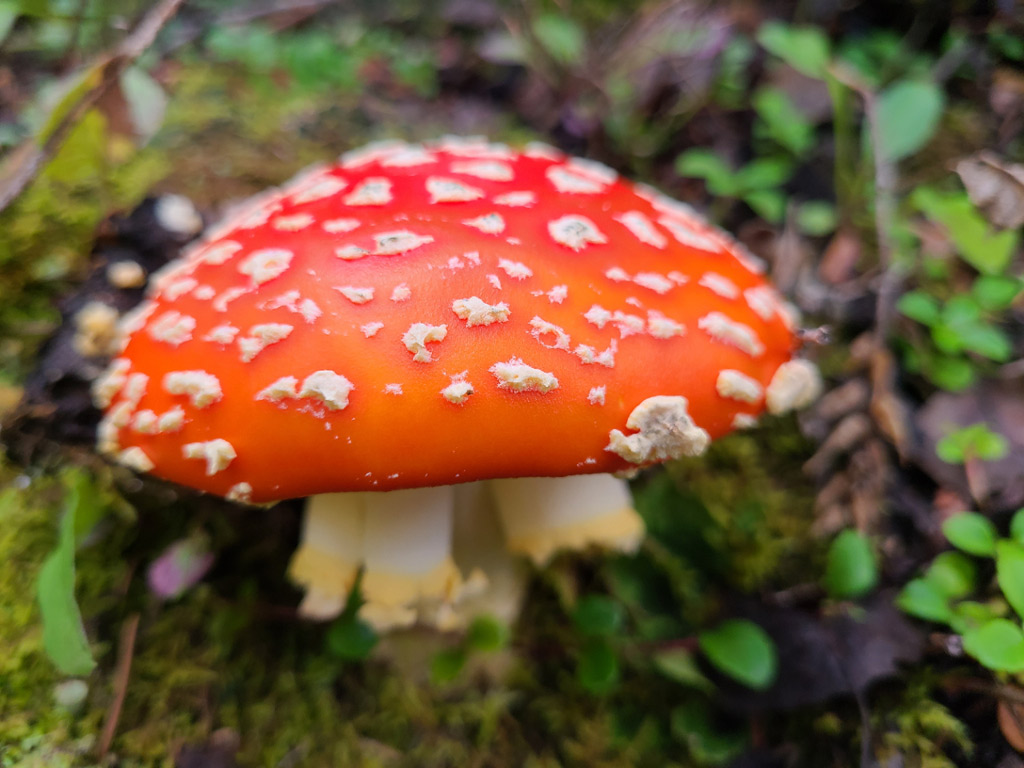Is It Okay To Eat Your Spirit Fungi?
Forums:
Mushrooms have recently triggered the "Matrix button" to go off inside my head ... just even thinking about fungi having its own "Kingdom" rattles the cage of my mind's eye to question what we typically accept as being familiar life forms.

- Log in to post comments

Top of Page Bottom of Page PermalinkFull Name: aiq
Indications are positive for
Indications are positive for this idea.
Top of Page Bottom of Page PermalinkFull Name: Def. High
Signs point to yes.
Signs point to yes.
Top of Page Bottom of Page PermalinkFull Name: intentionally blank
> fungi having its own
> fungi having its own "Kingdom"
That's just recognition that they have different structures and processes than plants. They're still life forms though, and that's what really matters, isn't it?
What boggles my mind are viruses, which require a living host, but they aren't generally thought to be alive themselves.
Top of Page Bottom of Page PermalinkFull Name: Druba
May the fungi queen live
May the fungi queen live forever!
Top of Page Bottom of Page PermalinkFull Name: intentionally blank
Terence McKenna thought that
Terence McKenna thought that magic mushrooms are literally otherworldly, meaning they come from outer space. Spores are remarkably hardy, and can survive a long journey through space.
https://www.youtube.com/watch?v=ljy3TH1T0jk
Top of Page Bottom of Page PermalinkFull Name: OO
The mushrooms are just fruits
The mushrooms are just fruits, the mycelium grows on, so your not killing it.
Top of Page Bottom of Page PermalinkFull Name: Def. High
Pretty sure viruses are alive
Pretty sure viruses are alive - they have no cells but they do have DNA.
Top of Page Bottom of Page PermalinkFull Name: 19.5 Degrees
> fungi having its own
> fungi having its own "Kingdom"
That's just recognition that they have different structures and processes than plants. They're still life forms though, and that's what really matters, isn't it?<<<
Not only different structures and processes than plants, but also animals the other kingdoms. It's precisely that they're STILL life forms being what really matters is what triggers my mind. I think most of us get used to classifying things as either plants or animals as being the ordinary / familiar representatives of "life". Inanimate vs. animate. Stationary vs. not. ... to oversimplify. Some believe fungi are more closely associated with animals, yet it doesn't really appear to us as such ... most of us casually lump them together with plants. So, it's one of those thin veils that - once lifted - shines new light on what it is to be an "animal". Also thought of viruses. And ...
Top of Page Bottom of Page PermalinkFull Name: intentionally blank
> Pretty sure viruses are
> Pretty sure viruses are alive
> Also thought of viruses. And ...
The debate over whether viruses are lifeforms often comes down to competing definitions of what it is to be alive. For me, viruses are more than just inert chemicals with the potential to make things happen, but they don't really strike me as fully alive. Maybe they should get their own kingdom too, if they haven't already.
Top of Page Bottom of Page PermalinkFull Name: 19.5 Degrees
but they don't really strike
but they don't really strike me as fully alive<<<
That's just it, what is it to be "alive"?
Yeah, we can talk about different kingdoms, but even so, is it not inescapable to be at least partially tethered to a bit of "anthropomorphism" with this question?
Top of Page Bottom of Page PermalinkFull Name: intentionally blank
> what is it to be "alive"?
> what is it to be "alive"?
An organismic state characterized by capacity for metabolism, growth, reaction to stimuli, and reproduction.
https://www.merriam-webster.com/dictionary/life
Where viruses are concerned, they do not seem to possess these capacities in the absence of a host.